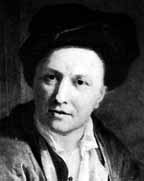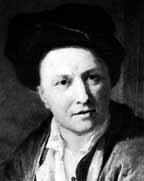

Monday, June the 28th, 2004
back to: title, date or indexes
I want to bestow a prize on Mister Blatfinch. A cup perhaps, or trophy. Or just a cup. He has just published his second book. The first was a word-for-word transcription of That Hideous Strength by C S Lewis, differing from the original only in that the sentences are jumbled up in no particular order, or not one that I can decipher. In his postface, Mister Blatfinch claims to have “wrested from this lamentable Christian apologist's noxious sci fi potboiler a new and urgent text, or re-text, or über-text, or we might go so far as to say a proto-Blatfinchesque text, the one he meant to write, had he not been C S Lewis”. Make of that what you will, or, as I did, dismiss it as the raving of a nincompoop.
His second book could not be more different from the first. Indeed, I made a point of checking that it was the same Mister Blatfinch, by doing a forensic comparison of the author photographs on the dust jackets of both volumes. You can carry out the same task yourself:


All I can say is that if those are two different authors, then Lord love a duck, you can knock me down with a feather and call me “Fontanelle, Bernard le Bovier de (1657-1757)”, and I'll wager you some pins and a cork or two for all that! The reason I want to give Mister Blatfinch some sort of award is because this second book of his is a delightful and entertaining memoir, rather than a vapid bit of twaddle. Not only that, but it rekindled my own memories of that very special time in the early 1970s when it seemed that “Krautrock” could revolutionise the way we listened to popular music. Remember Amon Duul? Magma? Popol Vuh? So does Mister Blatfinch. Well, he gives each of these groups a mention in his index, even if they are curiously absent from the body of the text itself. But that can be excused, for the book—My Teutonic Memory-Banks—is essentially a narrative of the author's experiences as a sound engineer with the forgotten group Döb Suun.
Döb Suun took their name from the out-of-print pamphleteer Dobson, and the lyrics to all their songs are taken from illegal German translations of some of his more… shall we say, “arresting” ornithological texts. The moving spirit in Döb Suun was lead singer, spinettist and all-round wild man Horst Brötzenkammernvergleist, who found a cache of pirated Dobson pamphlets when sorting through his father's papers after the latter's death. (Brötzenkammernvergleist Senior died during the so-called Weems Terror of 1967.)
It is to our great good fortune that Mister Blatfinch's memoir ends before the group degenerated into the turgid heavy metal monsters they became. Commercial success ruined them, of course, and they were never quite the same after being invited to support The Captain & Tenille on a tour of Canada, Alaska and Papua New Guinea as the 1970s ground to an ignominious end. Join me, then, as I beat my breast earnestly, raining a thousand and one “thank you”s upon Mister Blatfinch's remarkably-attired head for reminding me of the glorious days of those ear-splitting yet valiant albums Poisoned Linnets and The Ten Thousand Chaffinches Of Dr T.
Incidentally, tone deaf readers who prefer the latter-day Döb Suun may be interested in this article on the Heavy Metal Ümlaut.
Hooting Yard on the Air, December the 1st, 2004 : “The Teutonic Memory-banks of Mister Blatfinch” (starts around 00:11)